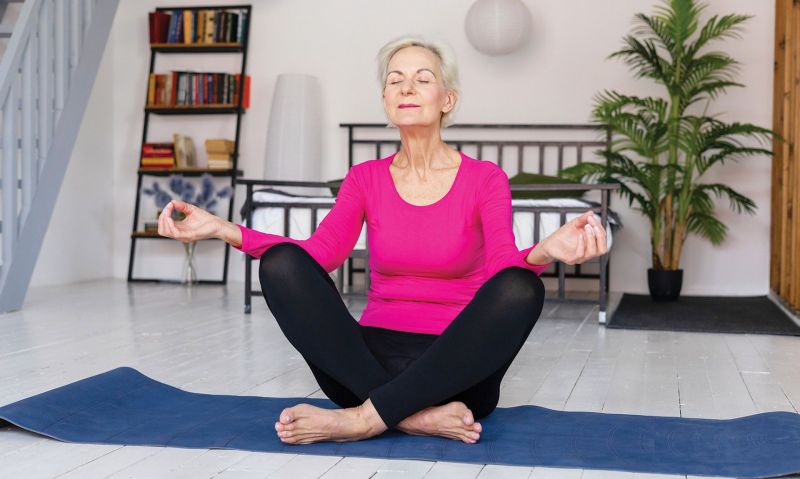
Meditation is a science-backed solution to effectively combat these feelings, whether they’re related to seasonal or other stresses.
The short, dark and cold days of winter can contribute to depression for many people, including veterans. Meditation is a science-backed solution to effectively combat these feelings, whether they’re related to seasonal or other stresses. Those who practice meditation say they find it relieves stress, reduces PTSD symptoms, improves sleep, lowers blood pressure, helps soothe pain, aids in managing depression and anxiety, and more.
Common types of meditation include:
Mindfulness. Urges awareness and being present in the moment while letting go of negative emotions and judgment. This form can increase focus and memory, reduce impulsive reactions and improve relationship satisfaction.
Guided. Uses the voice of a live person or recording to encourage you to form relaxing mental pictures or situations, using the senses to evoke feelings of calmness. This is a great option for beginners.
Transcendental. Emphasizes reciting a mantra (word, phrase or sound) and repeating it throughout the meditation. Studies show it may help reduce stress, depression and burnout.
Progressive muscle relaxation. Focuses on tensing and then relaxing muscles, often starting at the toes and working up the body. This form of meditation promotes calmness and relaxation, and may help with chronic pain.
Breathwork. Encourages mindful breathing, inhaling deeply and slowly by counting or using a cadence to reduce anxiety, improve concentration and increase emotional flexibility.
Metta or loving-kindness. Promotes attitudes of love, kindness and compassion toward yourself and others, including enemies and sources of stress. The key is repetition of the message until one achieves an attitude of benevolence.
How to get started
Starting a meditation discipline can be overwhelming. It’s normal to have racing thoughts and difficulty focusing, or feel like it isn’t working. The keys to meditation are consistency and compassion. The more you practice, the easier it becomes. Calm, Headspace and Insight Timer are downloadable guided-meditation apps that can help guide you through your meditation journey. For consistency, build it into your daily routine. Pair meditation with a daily habit like brushing your teeth, showering, or right before you go to sleep.
Also, ease your way into it. Start with short sessions and gradually increase the time and frequency of your practice. If you’re having acute stress or a panic attack, breathwork and progressive muscle relaxation meditation can be powerful tools in overcoming them.
Army veteran Jennifer Campbell is a certified personal trainer with a master’s degree in nutrition education. She is past commander of the California American Legion’s 24th District and Hollywood Post 43.
- Magazine

